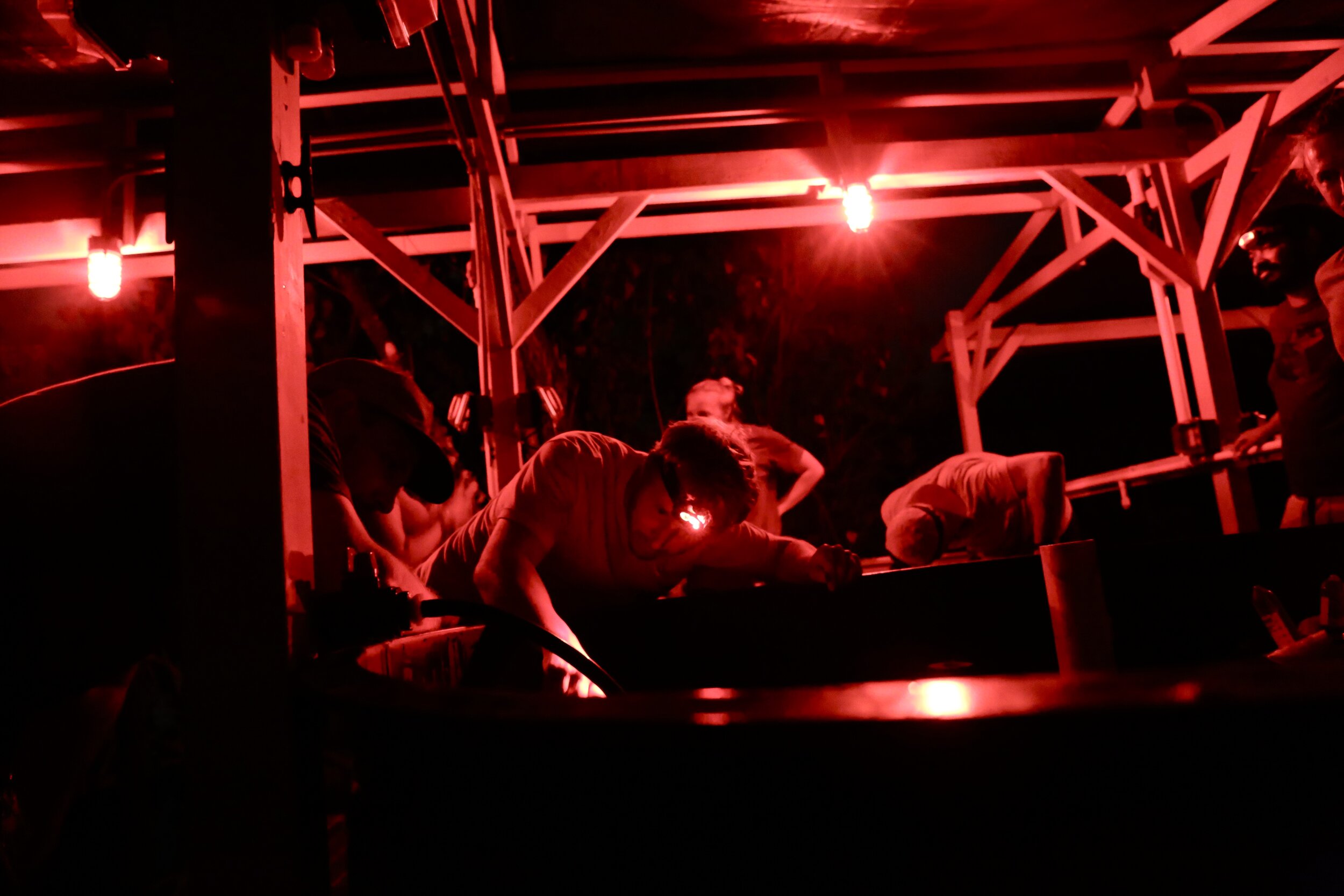Next Generation Coral Husbandry
The future of coral reefs hinges on their ability to adapt to changing conditions, a process which only occurs across generations. To study these effects, we continue to develop methods to increase efficiency and production of sexually produced corals. These pipelines can be used to produce ‘wild-type’ larvae and applied to our selective breeding framework to dramatically increase production of thermally tolerant corals for experiments and restoration.
Ongoing Projects
Optimization of settlement density, light, flow, substrate conditioning and micro-herbivory for downstream survivorship
Optimization of larval rearing density
Development of automated larval rearing conicals
Development of future climate predictions for Hawaiʻi to create hyper-realistic treatments that will help accurately predict future outcomes
Development of chimerism as a source of thermal tolerance
Publications
Hancock J, Barrows A, Roome T, Huffmyer AS, Matsuda S, Munk N, Rahnke S, Drury C. Coral husbandry for ocean futures: leveraging abiotic factors to increase survivorship, growth and resilience in juvenile Montipora capitata. Marine Ecology Progress Series (2021). Link.
Huffmyer AS, Drury C, Majerova E, Lemus JD, Gates RD. Tissue fusion and enhanced genotypic diversity supports survival of juvenile Pocillopora acuta corals under thermal stress. Coral Reefs (2021). Link.
Rahnke SA, Hancock J, Munk N, Caruso C, Drury C. Optimizing production of Montipora capitata for restoration: effects on abiotic conditions and light acclimation on juvenile survival and growth. Marine Ecology Progress Series (2022). Link.
Alexander G, J Hancock, AS Huffmyer, SB Matsuda. Larval thermal pre-exposure does not improve post-settlement thermal tolerance in a dominant reef-building coral, Montipora capitata. Coral Reefs (2022). Link.
Kundu S, Potenti S, Quinlin ZA, Wilard H, Chen J, Noritake T, Levy N, Karimi Z, Jorissen H, Hancock JR, Drury C, Wegley Kelly L, De Cola L, Chen S, R3D Consortium, Wang praseurt D. Biomimetic chemical microhabitats enhance coral settlement. In Press (2024).
